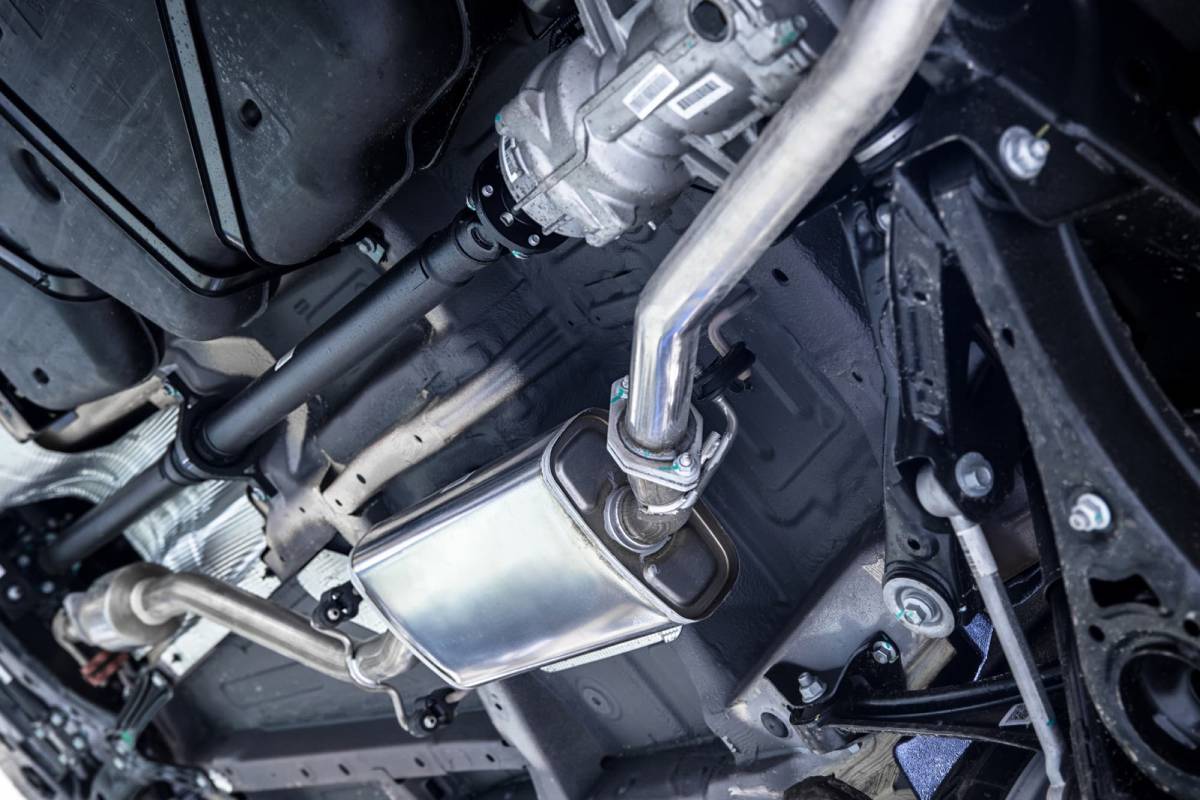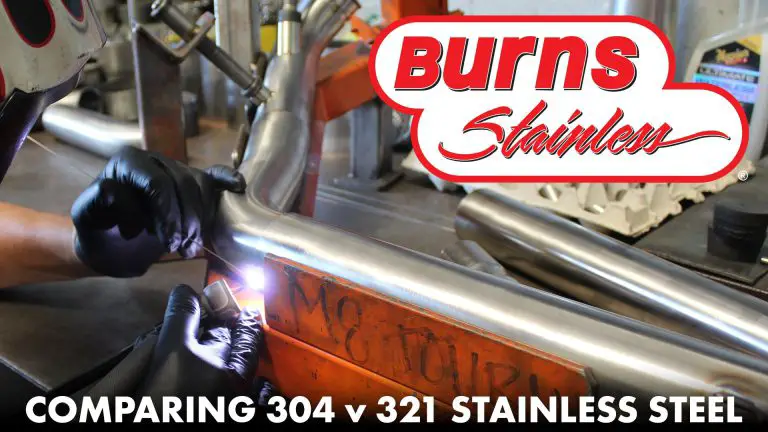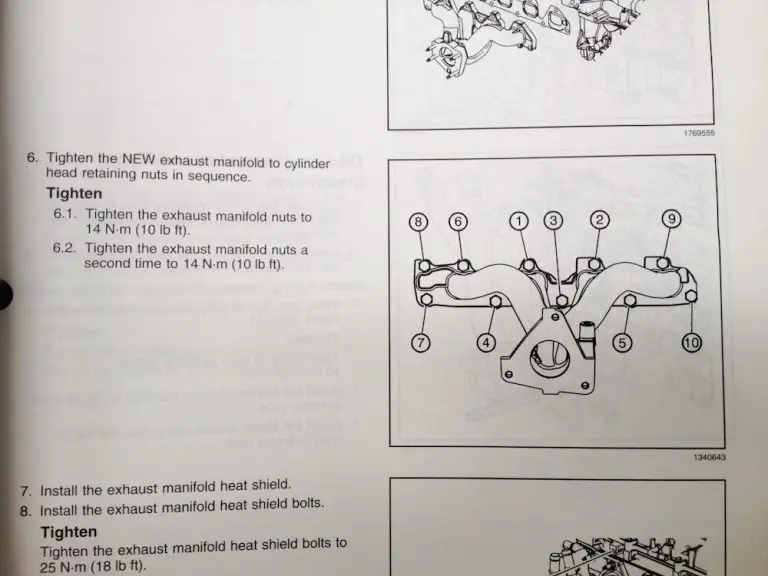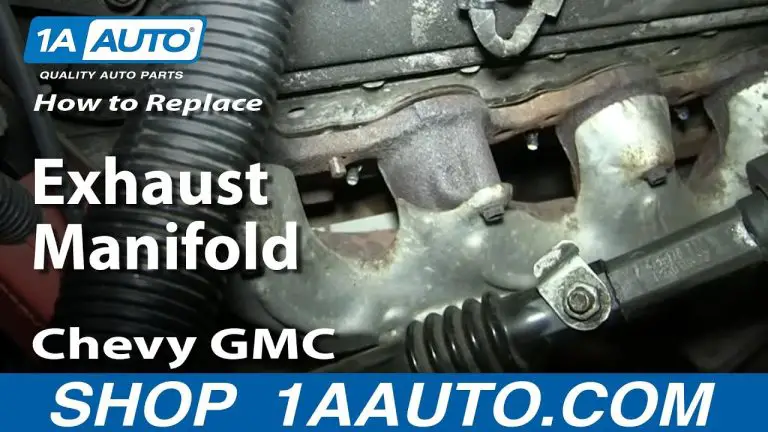What is an Exhaust Flange: All You Need to Know
An exhaust flange is a pair of metal sections that join your exhaust pipe together, ensuring a tight seal and preventing leaks, noise, and performance issues. Over time, exhaust flanges can become corroded, damaged, or warped due to heat, moisture, and vibrations.
Proper maintenance and cleaning of exhaust flanges are necessary to ensure their longevity and optimal performance. If an exhaust flange needs to be replaced, it is important to consider the cost and material of the replacement flange. Additionally, exhaust flange gaskets are necessary in some vehicles to provide a tight seal and prevent outside air from entering the exhaust system.
Understanding the purpose and maintenance of exhaust flanges is crucial for maintaining a well-functioning exhaust system.
Overview Of An Exhaust Flange
An exhaust flange is a crucial component in the exhaust system that helps seal the exhaust gases and prevent leaks, noise, and performance issues. It consists of two metal sections that join the exhaust pipe together, along with an exhaust gasket and a set of bolts.
Over time, exhaust flanges can become corroded, damaged, or warped due to heat, moisture, and vibrations. It is important to maintain and clean them regularly to ensure their proper functioning. Exhaust flanges are typically made of durable materials such as stainless steel for longevity and resistance to rust.
Without exhaust flanges, the exhaust system would be unable to effectively guide and remove the reaction exhaust gases from the engine or stove. Hence, they play a vital role in maintaining the overall performance and efficiency of the exhaust system.
Types Of Exhaust Flanges
Exhaust flanges are essential for sealing the exhaust gases and preventing leaks, noise, and performance issues. They come in different shapes, sizes, and materials. Common materials used for exhaust flanges include stainless steel, mild steel, and cast iron. These materials offer varying levels of durability and resistance to heat and corrosion.
Different shapes and sizes of exhaust flanges are available to accommodate the specific exhaust system requirements of vehicles. Each type of exhaust flange has its pros and cons, such as ease of installation, cost-effectiveness, and compatibility with different exhaust systems.
It is important to choose the right type of exhaust flange based on your vehicle’s needs and the desired performance outcomes. Regular maintenance and cleaning of exhaust flanges can help prolong their lifespan and ensure optimal functioning of the exhaust system.
Common Issues And Solutions For Exhaust Flanges
An exhaust flange is a crucial component that seals the connection between exhaust pipes, preventing leaks, noise, and performance issues. These flanges can become corroded, damaged, or warped over time due to heat, moisture, and vibrations. Signs of a damaged or faulty exhaust flange may include a loud rumbling noise, decreased engine performance, and the smell of exhaust fumes.
Common causes of exhaust flange problems include rust, wear and tear, and faulty installation. To maintain and clean exhaust flanges, it is important to regularly inspect them for any signs of damage or corrosion. Cleaning can be done using a wire brush and a suitable cleaner.
In case of severe damage, repair or replacement options are available, depending on the extent of the issue. It is always recommended to consult a professional for proper repair and replacement of exhaust flanges.

Credit: www.minit-tune.com
Frequently Asked Questions Of What Is An Exhaust Flange
What Does Exhaust Flange Do?
An exhaust flange is a metal connector that seals the exhaust gases, preventing leaks, noise, and performance issues.
How Much Does An Exhaust Flange Cost?
The cost of an exhaust flange varies. Please check with your local automotive parts store or online retailers for pricing.
What Are Exhaust Flanges Made Of?
Exhaust flanges are made of metal and are used to seal the exhaust gases, preventing leaks, noise, and performance issues.
Are Exhaust Flange Gaskets Necessary?
Exhaust flange gaskets are necessary as they seal the exhaust gases, preventing leaks, noise, and performance issues.
Conclusion
Exhaust flanges play a crucial role in sealing the exhaust gases and preventing leaks, noise, and performance issues. As essential connectors in the exhaust system, they join different sections such as the manifold and catalytic converter. However, over time, these flanges can become damaged or corroded due to heat, moisture, and vibrations.
It is important to properly maintain and clean them to ensure their optimal functionality. When it comes to repairing exhaust flanges, there are affordable options available. You can easily fix or replace a broken or rusted exhaust flange yourself with the right tools and techniques.
However, if you prefer professional assistance, there are reputable suppliers and repair services available to meet your needs. Remember, maintaining the integrity of your exhaust flanges is vital for the overall performance and longevity of your vehicle. Regular inspection and timely repairs can save you from costly issues down the road.
Understanding the importance of exhaust flanges and taking proper care of them will ensure a smooth and efficient exhaust system for your vehicle.



